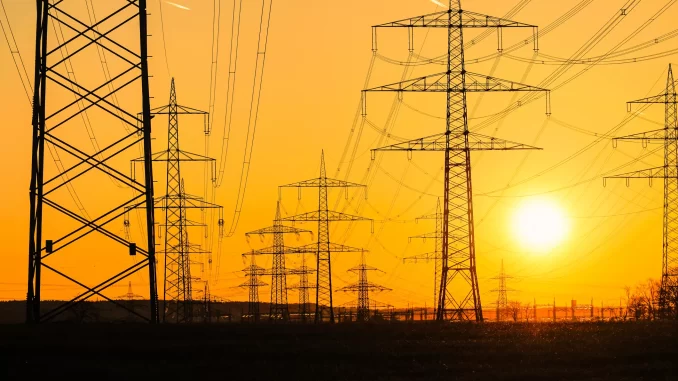
By Hank Russell
U.S. Representative Andrew Garbarino (R-Patchogue) helped introduce a bill that he says will secure the country’s future energy needs.
The Certainty for Our Energy Future Act would strengthen America’s energy independence and national security. Specifically, this legislation would amend the Internal Revenue Code of 1986 by phasing out subsidies for advanced renewable technologies, while bolstering national security by imposing restrictions on foreign adversaries like China, Russia, and Iran. This bill would also maintain investment certainty during the transition, promote innovation in emerging energy sectors, and support American manufacturers.
Garbarino joined Jen Kiggans (R-Virginia)in introducing the Act. This bill was introduced alongside Representatives David Valadao (R-California), Mark Amodei (R-Nevada), and Dan Newhouse (R-Washington).
“Certainty for the energy industry is essential to securing American energy dominance, driving innovation, and lowering costs for consumers,” Garbarino said. “The Certainty for Our Energy Future Act provides the predictability businesses need to invest with confidence while protecting taxpayers from foreign threats.”
“The Certainty for Our Energy Future Act is a critical step toward aligning our clean energy priorities with today’s economic and national security realities,” said Kiggans. “By responsibly phasing out subsidies for technologies like wind and solar and ensuring foreign adversaries like China and Russia can’t exploit American tax benefits, we are safeguarding both our energy independence and our taxpayers. Energy security is national security, and the bottom line is that in order to increase American energy dominance, we need to protect as much production and innovation as possible.”
“The Central Valley is leading the way in renewable energy production, and our communities deserve policies that provide stability and certainty for the future,” Valadao added. “The Certainty for our Energy Future Act preserves the clean energy tax credits farmers and energy producers rely on, while phasing out long-term subsidies for technologies that can now stand on their own.”
“America’s path to energy independence must involve an all-of-the-above clean energy approach that puts American manufacturers at the center,” said Amodei. “By excluding foreign adversaries from tax benefits and prioritizing American innovation, we are one step closer to a more secure and self-reliant energy future.”
“The United States has the opportunity to lead the world in clean energy production while lowering costs for consumers,” Newhouse added. “By phasing out tax incentives supporting wind and solar projects, Congress can provide long-term certainty to utilities and investors. This legislation provides critical protections to ensure federal investments are not being utilized by foreign adversaries, including Communist China.”
The legislation also received support from energy advocacy organizations.
“Right-sizing policies in parallel with offering business and investment certainty is both critical and commonsense,” said Citizens for Responsible Energy Solutions. “As America seeks to beat China in the global AI race, legislation like this strengthens our nation’s competitive edge while also ensuring American energy remains abundant and affordable.”
“As electric companies work to meet growing customer demands for electricity and to strengthen our nation’s energy security, we must have policy certainty,” said Edison Electric Institute interim President and CEO Pat Vincent-Collawn.
Frank Macchiarola, chief advocacy officer of the American Clean Power Association, added, “The Act ensures that we protect business certainty for projects currently under planning and development and offers a very constructive starting point for discussions on the clean energy tax credits. With electricity demand projected to increase by up to 50% over the next 15 years, we need an all-of-the-above energy strategy. This legislation helps provide a roadmap to lawmakers as they continue to address this important issue.”

